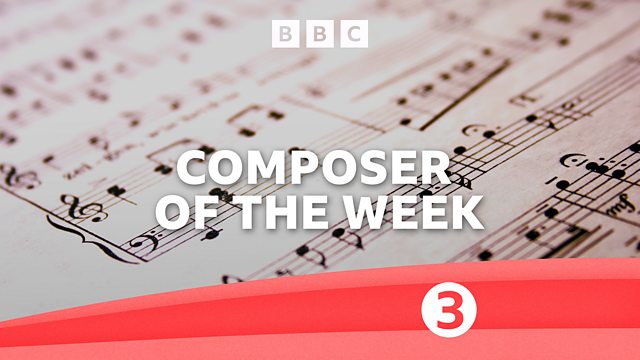
The Baton Passes
Donald Macleod explores Gluck’s final years - a time of Viennese culture wars, and friendships with Mozart and Salieri.
Donald Macleod explores Gluck’s final years - a time of Viennese culture wars, and friendships with Mozart and Salieri.
Christoph Willibald Gluck (1714-1787) arguably did more to transform opera than any composer of his generation: thinking deeply about how text and music should work together, and trying to strip away fripperies to ensure it was urgent, powerful and arresting. His radical approaches made him one of the most influential composers in history - and yet today, he’s known in the concert hall almost exclusively for one work: his masterpiece “Orpheus and Eurydice”. This week, Donald Macleod puts that right: showcasing Gluck’s dazzling and enchanting music from across his life - whilst also showing off his most famous work across the week in its many fascinating versions.
By the 1770s, a new generation of composers were taking Vienna by storm with their own musical innovations - themselves influenced hugely by Gluck’s music. Donald Macleod ends the week by exploring Gluck’s encounters with the young Wolfgang Amadeus Mozart and his rival Antonio Salieri, and tells the strange tale of an 18th century culture war between supporters of Gluck’s operas and those of his supposed sworn enemy, Niccolo Piccini.
Gluck (arr Schubert) Rien de la nature (Echo et Narcisse)
Ann Murray (mezzo-soprano), Graham Johnson (piano)
Armide (Act 5 opening)
Mireille Delunsch, soprano (Armide)
Charles Workman, tenor (Renaud)
Les Musiciens du Louvre, Chorus Of Les Musiciens Du Louvre, conductor Marc Minkowski
Iphigenie en Tauride, Wq 46 (excerpts)
Susan Graham, soprano (Iphigenie)
Orchestra of the Age of Enlightenment, Harry Bicket
De Profundis
Festivalchor Musica Franconia & La Banda, conductor Wolfgang Riedelbauch
Orphee et Eurydice (1774 Paris edition): Act 3 (finale)
Juan Diego Flórez, tenor (Orphée)
Alessandra Marianelli, mezzo-soprano (Amour)
Ainhoa Garmendia, soprano (Eurydice)
Orquesta Sinfónica de Madrid, Coro Sinfonico de Madrid, conductor Jesús López Cobos
Produced by Steven Rajam for ��ѿ��ý Audio Wales & West
Last on
More episodes
Next
You are at the last episode
Music Played
-
![]()
Christoph Willibald Gluck
Rien de la nature from Echo et Narcisse
Performer: Graham Johnson. Music Arranger: Franz Schubert. Singer: Ann Murray.- HYPERION : CDJ-33033.
- HYPERION.
- 2.
-
![]()
Christoph Willibald Gluck
Armide (Act 5, Sc 1)
Singer: Charles Workman. Singer: Mireille Delunsch. Choir: Musiciens du Louvre Choir. Orchestra: Musiciens du Louvre Orchestra. Conductor: Marc Minkowski.- ARCHIV : 459 616-2.
- ARCHIV.
- 52.
-
![]()
Christoph Willibald Gluck
Iphigenie en Tauride (excerpts)
Singer: Susan Graham. Orchestra: Orchestra of the Age of Enlightenment. Conductor: Harry Bicket.- ERATO : 8573-85768-2.
- ERATO.
- 4.
-
![]()
Christoph Willibald Gluck
De Profundis
Ensemble: Festivalchor Musica Franconia & La Banda. Conductor: Wolfgang Riedelbauch.- CHRISTOPHORUS : CHR 77413.
- CHRISTOPHORUS.
- 1.
-
![]()
Christoph Willibald Gluck
Orfeo ed Euridice (Act 3, Finale)
Singer: Juan Diego Flórez. Singer: Alessandra Marianelli. Singer: Ainhoa Garmendia. Orchestra: Orquesta sinfónica de Madrid. Choir: Madrid Symphony Chorus. Conductor: Jesús López Cobos.- DECCA : 478-2197.
- DECCA.
- 8.
-
![]()
Richard Wagner
The Ride of the Valkyries (Die Walküre)
Orchestra: Berliner Philharmoniker. Conductor: Claudio Abbado.- The Berlin Album: Berliner Philharmoniker, Claudio Abbado.
- Deutsche Grammophon.
Broadcast
- Fri 27 Sep 2024 16:00��ѿ��ý Radio 3
Beethoven Unleashed – the box set
What was really wrong with Beethoven?
Composers A to Z
Who knew? Five eye-opening stories from Composer of the Week
Five reasons why we love Parry's Jerusalem
What is the strange power of Jerusalem which makes strong men weep?
A man out of time – why Parry's music and ideas were at odds with his image...
The composer of Jerusalem was very far from the conservative figure his image suggests.
Composer Help Page
Find resources and contacts for composers from within the classical music industry.





